Five issues that will shape the Northern Powerhouse
- Published
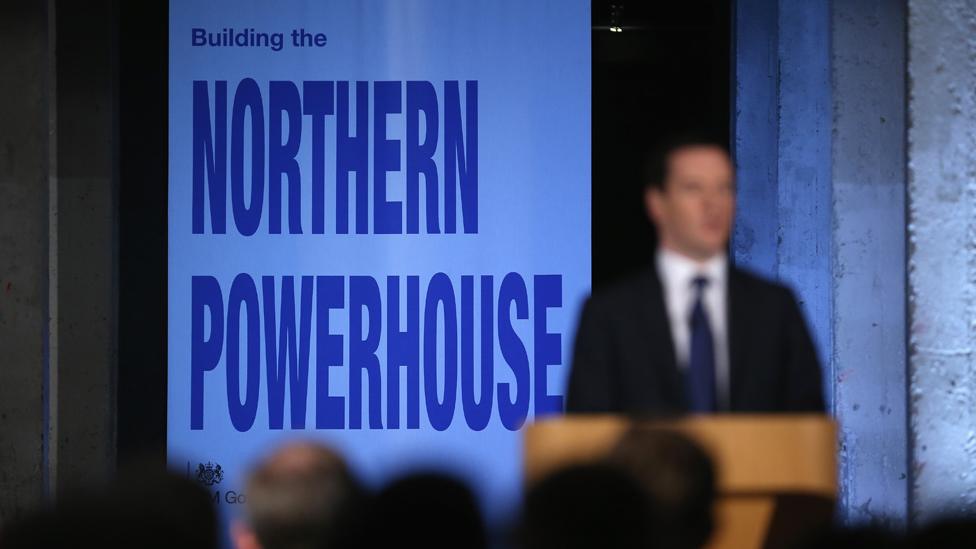
Key decisions will be made shortly about transport infrastructure in what Chancellor George Osborne calls the Northern Powerhouse. But what will it mean in reality?
George Osborne first spoke of creating a "Northern Powerhouse" - an economic success story in the north of England to rival London - in 2014. But the concept will finally begin to take form over the next few weeks when the quango Transport for the North publishes its report on regional transport priorities. The government's National Infrastructure Commission will make its recommendations too.
A road and rail revolution is being promised, but what is likely to happen in practice?
Bring Leeds and Manchester together...
And Newcastle, Liverpool, York and Hull. The Northern Powerhouse is firmly focused on transport between towns and cities. The idea is to reduce travel-to-work times so high-end knowledge sector workers will seek jobs in different cities without needing to move house.
George Osborne wants the North to operate as a single unit, much like Greater London, although tying outlying Newcastle, Liverpool and Hull into the central core of Leeds/Manchester will be a mighty feat.
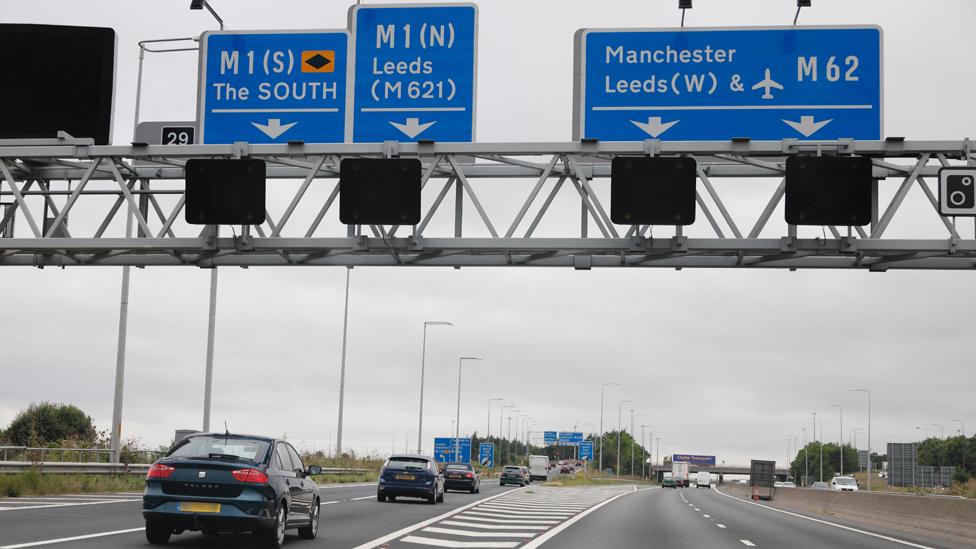
The first objective is to reduce the rail journey time between the biggest cities, Leeds and Manchester, to half an hour from around 50 minutes.
But the Northern Powerhouse makes the assumption that would-be commuters in each city can easily reach the station. If they are young professionals in central apartments, working in city centre offices the other side of the Pennines, that'll be fine.
If, on the other hand, they live in the suburbs and their workplace is not central, they will still face unappealing journey times that don't entice them to improve productivity with a trans-Pennine job. Manchester has the worst jams in the UK after London, and on a recent visit I found people desperate for the tram network to be extended to the size that would be normal in many similar European cities.
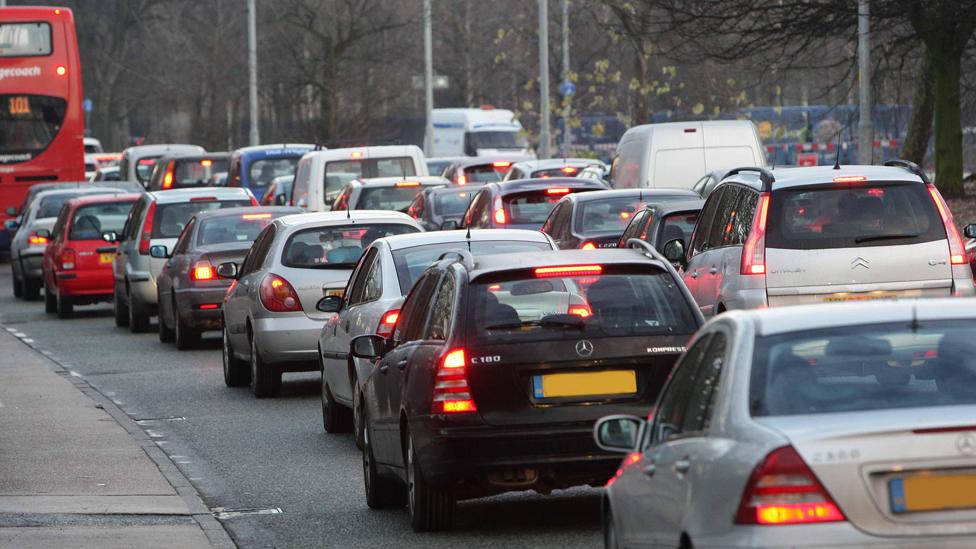
Manchester has the worst traffic jams in the UK after London
There's a worry among travellers that huge sums being mooted for the inter-urban links of the Powerhouse will divert cash from desperately needed urban transport. One woman from the Manchester suburbs said: "I don't want to commute to bloody Leeds. I want to be able to get into bloody Manchester."
A smart M62
The National Infrastructure Commission and Transport for the North agree rail services are inadequate - but they are also fixated on improving trans-Pennine road routes, especially for freight.
Before considering brand new roads, the commission will push for the M62 to be made a smart motorway, external with hard-shoulder running along its length - although some transport campaigners are not yet convinced this is adequately safe.
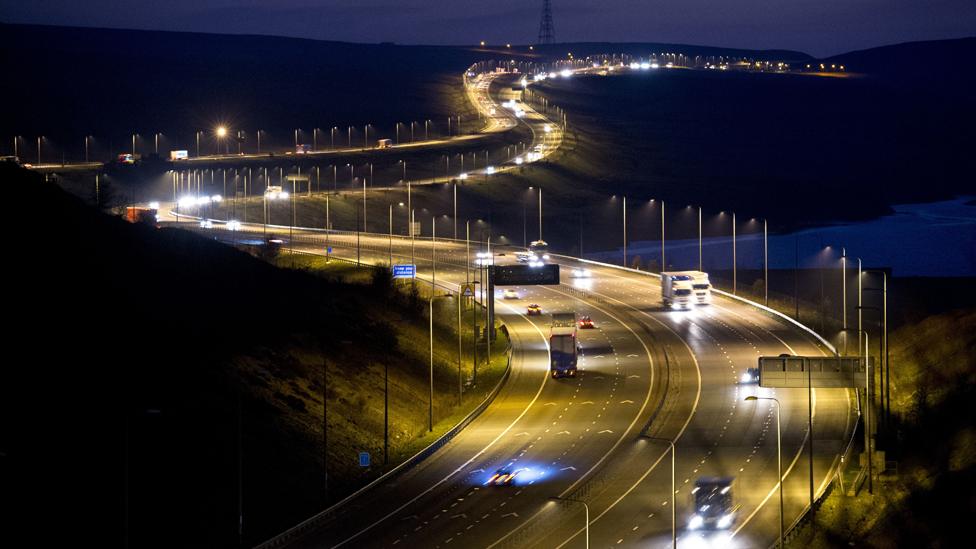
In planning to increase the capacity of a motorway like the M62, the North will be following the example set by London in expanding the M25.
But will the North follow the more general example of London in gradually turning its back on the car on city streets? Since the London Mayor imposed road pricing, traffic slumped and bike journeys boomed along with the economy.
More and more Londoners are abandoning cars altogether and some planners believe the future capital will have no space for private cars at all. Is this the aspiration for cities in the North and Midlands where drivers are more dearly wedded to their wheels?
There's a debate to be had over the impact of the chosen infrastructure. New motorways are likely to spark a demand for more out-of-town development.
But improved rail links will concentrate economic development on city centres which are easiest served by public transport, walking and cycling. In other words, the road/rail debate is about much more than transport - it's about the identity of cities in the future.
Do roads bring jobs?
The chancellor is keen to boost the economy of the North and improve productivity, which lags behind that of other key regions.
But is infrastructure the best way to do that? In the mid-1990s the government's Standing Committee on Trunk Road Assessment analysed the traditional business adage "roads bring jobs".
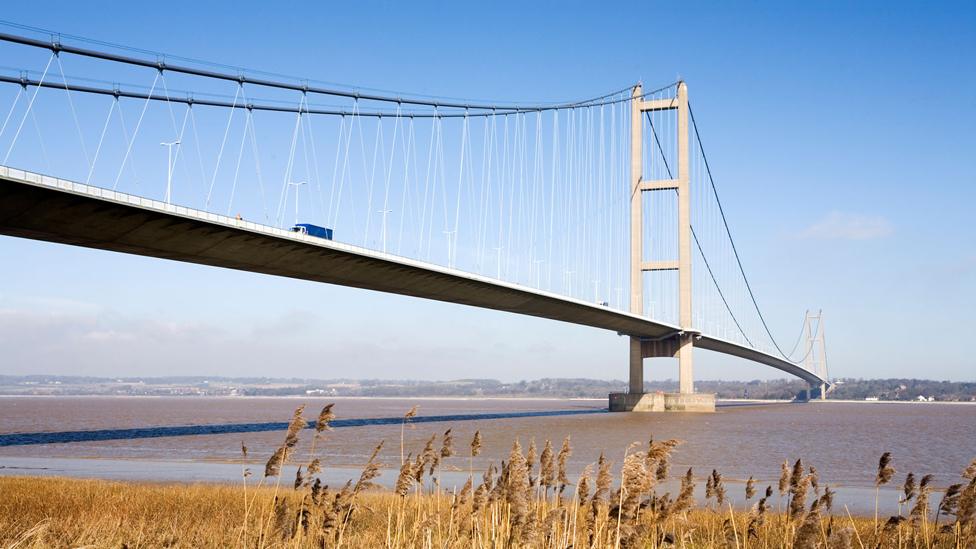
The Humber Bridge, looking north from North Lincolnshire
It concluded that a new road to a far-flung town might bring jobs - or it might take jobs away as a weak remote economy was exposed to the fierce breath of competition. Will Hull thrive or suffer if transport is radically improved to the eastern fringe of the Powerhouse? There's no way of telling.
Some people think investment in skills, education and training would be a more certain way of improving productivity - and business leaders are keen to ensure that these key elements are not forgotten in the rush for steel and tarmac.
I asked former CBI director-general John Cridland, who is now head of Transport for the North, if there was any certainty that spending billions on infrastructure would improve productivity. He agreed there was no proof, but urged people to take a leap of faith - like the Victorian engineers.
Pennines road tunnel
The team behind the HS2 high-speed rail link from London to the North says the key factor in building the new track was the forecast for future passenger numbers. The demand on the network is simply too high to be delivered by current tracks, so a new route is the only way, it argues.
Many oppose that decision, but the National Infrastructure Commission will apply a similar logic to the Northern Powerhouse. Its first question will be: can the existing system be upgraded?
The two big projects that have excited engineers and the firms who make fortunes out of them are HS3 - the proposed new fast rail link through the Pennines, and even more heroic, the road tunnel from Sheffield to Manchester, external, which would not have to close in bad weather.
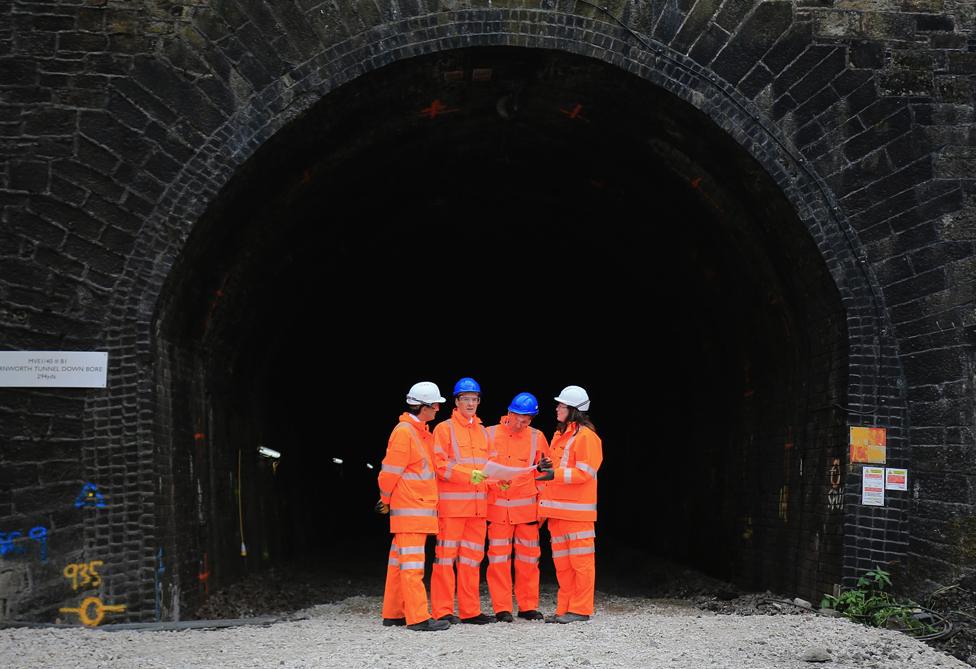
These two cities are reputedly the worst-connected of their size anywhere in Europe.
Politicians accept that they can't touch the precious Peak District National Park, so the idea is to tunnel underneath it from the edge of one city to the edge of the other. At more than 30 miles, it would be one of the longest tunnels in the world.
This sort of infrastructure stirs passions. What a declaration of love from Westminster to the North! But there would be problems.
First is the impact on the Peak Park. Until we get all-electric cars, the subterranean vehicles and their occupants will need to breathe as they drive. That means ventilation shafts thrusting awkwardly through the peat bogs. Each vent will spew polluted air that may alter the chemistry of the moors.
The road would also stimulate huge demand for development on the periphery of each city, generating even more traffic on surrounding roads.
Then there's the factor which will almost surely kill the project for the next few decades - the price. Highways England hasn't revealed its estimate yet, but the people behind the Powerhouse suspect it will be prohibitive.
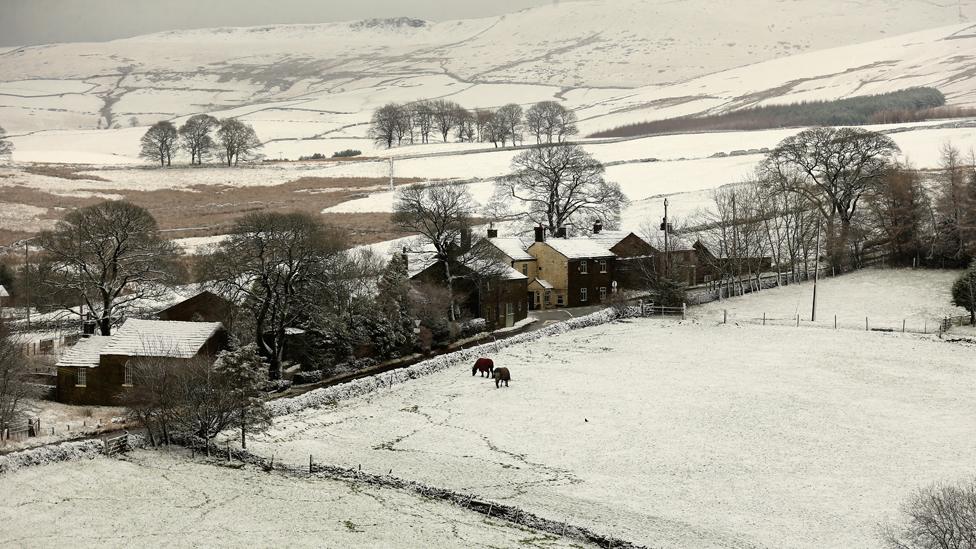
The Peak District - no transport link would be able to affect it
HS3
HS3 is a proposed rail link from Leeds to Manchester which includes tunnelling beneath the Pennines. But HS3 is a misnomer. The distance between the two cities is so short at about 40 miles that high-speed trains won't be high-speed at all. It's been estimated they could reach 125mph (200km/h), external.
The proposals could mean using existing but unused Pennine tunnels or building new ones.
But the first priority would be to electrify the current track and increase the number of carriages at rush hour. If passenger demand follows capacity supply, another track may be considered in the future.
Expect pragmatic decisions in the first instance, not heroic ones.
Follow Roger Harrabin on Twitter @rharrabin, external

More from the Magazine
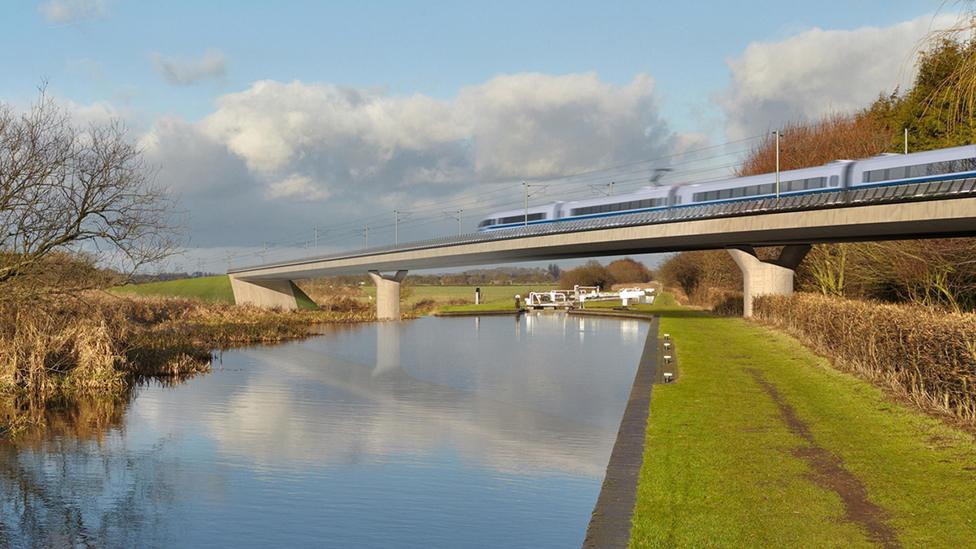
The government is pressing ahead with the HS2 high-speed rail link between London and the North of England, but there are critics who believe the money could be better spent elsewhere. But what are the alternatives? Here are five infrastructure projects, suggested by experts.
Could these five projects improve life in the UK? (August 2013)

Subscribe to the BBC News Magazine's email newsletter to get articles sent to your inbox.